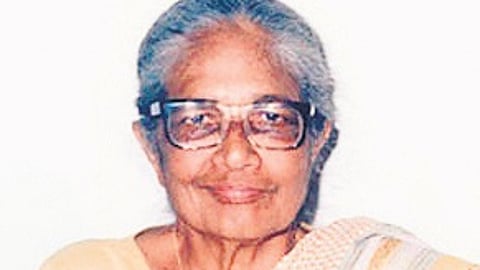

At a time when women were sidelined and considered incapable of intellectual pursuits, Anna Mani from Thiruvananthapuram, Kerala, emerged as a major contributor to the then nascent realm of meteorology. She is known for helping India develop its own weather instruments and thus reduce dependence on other countries.
Born on August 23, 1918, Mani emerged as a distinguished physicist and meteorologist. She retired as the Deputy Director General of the Indian Meteorological Department (IMD) and also worked as a professor at the Raman Research Institute, Bengaluru. Born as the seventh of eight children, Mani was a voracious reader from a very young age.
At the bare age of eight, she had read almost all the books in Malayalam at a public library. However, during the early 1900s, it was very rare for young girls to receive quality education. But she managed to break the norm and fulfilled her passion for learning by pursuing her higher education.
Following her graduation, she made several contributions to scientific research, and was also mentored by Sir CV Raman at the Indian Institute of Science, Bengaluru, where she carried out research in physics. Her first step in setting off on the path as a meteorologist and revolutionising the scientific community in India started when she was at the Imperial College in London.
It was here that she was exposed to meteorology and its varied weather instruments. In 1948, Mani returned to India and joined the IMD, where she worked in the instrument division. Working with SP Venkiteshwaran, who had a vision of making India self-reliant, she helped in the manufacture of various weather instruments. With her team of scientists, she standardised nearly 100 different instruments to set off their production.
Besides, she also played a prime role in developing instruments to measure solar radiation and also helped set up a radiation station in the country. Meanwhile, despite her contributions to the field of meteorology, Mani was reportedly discriminated against by her male colleagues. However, against all odds, she forever etched her name as a pre-eminent Indian meteorologist. She passed away on August 16, 2001.